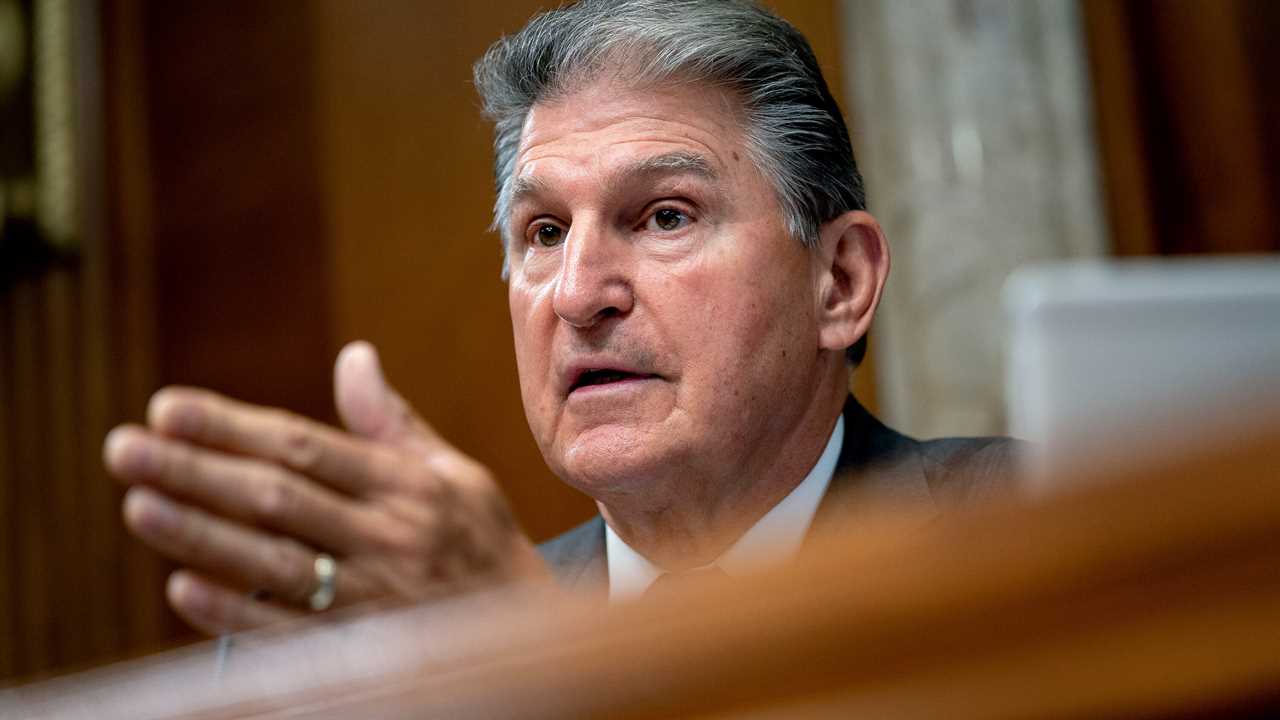
WASHINGTON — Senator Joe Manchin III of West Virginia said on Sunday in no uncertain terms that he will not vote for the Democrats’ far-reaching bill to combat voter suppression and restore ethical controls on the presidency shattered by Donald J. Trump.
In an opinion piece in a West Virginia paper, Mr. Manchin, a Democrat, also reiterated his staunch opposition to ending the Senate’s legislative filibuster, which would seem to end many of President Biden’s most ambitious legislative goals.
It is also a moot point if he would not vote for the bill it was supposed to be eliminated for, the For The People Act. The bill would roll back dozens of laws being passed by Republican state legislatures to limit early and mail-in voting and empower partisan poll watchers and voting oversight.
The legislation would also force major-party candidates for president and vice president to release 10 years’ worth of personal and business tax returns and end the president’s and vice president’s exemption from executive branch conflict-of-interest rules, which allowed Mr. Trump to maintain businesses that profited off his presidency.
“I believe that partisan voting legislation will destroy the already weakening binds of our democracy, and for that reason, I will vote against the For the People Act. Furthermore, I will not vote to weaken or eliminate the filibuster,” Mr. Manchin wrote in The Charleston Gazette-Mail, his home state capital’s newspaper.
.
Under Senate rules, 60 votes are needed to end debate and break a filibuster on policy legislation. Republican and Democratic Senates have chipped away at the filibuster, ensuring that most executive branch appointees and judicial nominees can be confirmed with a simple 51-vote majority. A budget rule, called reconciliation, has also been stretched to pass ambitious legislation under the guise of spending and taxation. Major tax cuts pressed by President George W. Bush and Mr. Trump were passed with simple majorities as budget bills, as were parts of the Affordable Care Act and a $1.9 trillion Covid-19 relief bill earlier this year.
But bills that are purely policy oriented are still subject to a 60-vote majority in the Senate, and all 48 Democrats and both liberal-leaning independents would have to align to change that rule. Even if they did, all 50 would have to vote for the voting rights and ethics bill, considering that no Republican is expected to back it.
Mr. Manchin said instead that he would support passage of another bill, the John Lewis Voting Rights Advancement Act, which would restore federal oversight over state-level voting law changes to protect minority groups that might be targeted. He cited one Republican, Senator Lisa Murkowski of Alaska, as a supporter of the measure.
But he is still far short of the 60-vote threshold he backs to pass even that bill.
“I continue to engage with my Republican and Democratic colleagues about the value of the John Lewis Voting Rights Advancement Act and I am encouraged by the desire from both sides to transcend partisan politics and strengthen our democracy by protecting voting rights,” Mr. Manchin wrote.
Mr. Manchin’s opposition to ending the filibuster and backing strictly Democratic bills could have implications beyond voting rights. He supported the pandemic-relief bill this year, which passed on party lines, but Democratic leaders are considering passing other measures under reconciliation, including an infrastructure bill that will most likely top $1 trillion.
Mr. Manchin declined to say how he would vote on a party-line infrastructure bill, saying that a bipartisan group of senators negotiating a deal that could get at least 60 votes are “not that far apart.”
“I still have all the confidence in the world,” Mr. Manchin said on “Fox News Sunday.” “We’re going to get there. My goodness, the president has gone from $2.25 trillion down to $1 trillion. The Republicans have come up quite a bit from where they started.”
He was firm on the voting rights bill, saying that passing it on a party-line vote would further divide the country, which is seeing state after state pass party-line voting restrictions where Republicans control the legislature and governor’s office.






